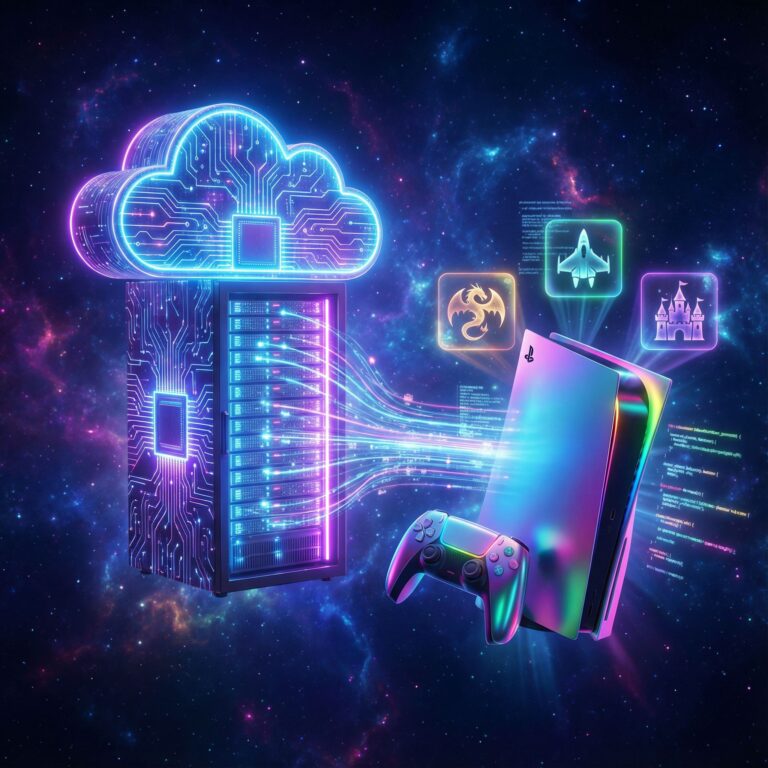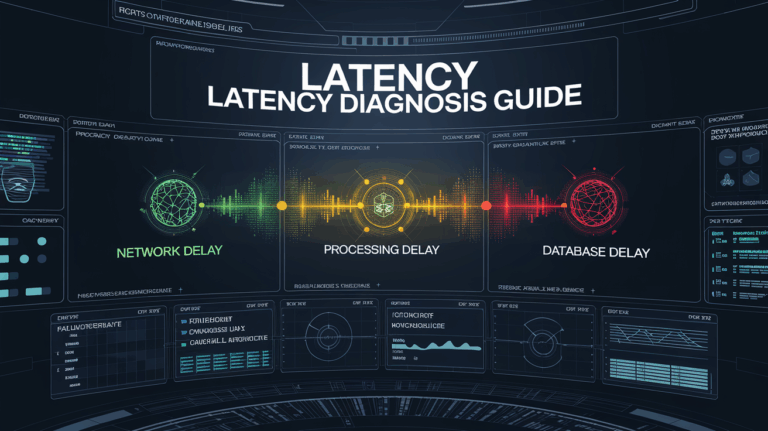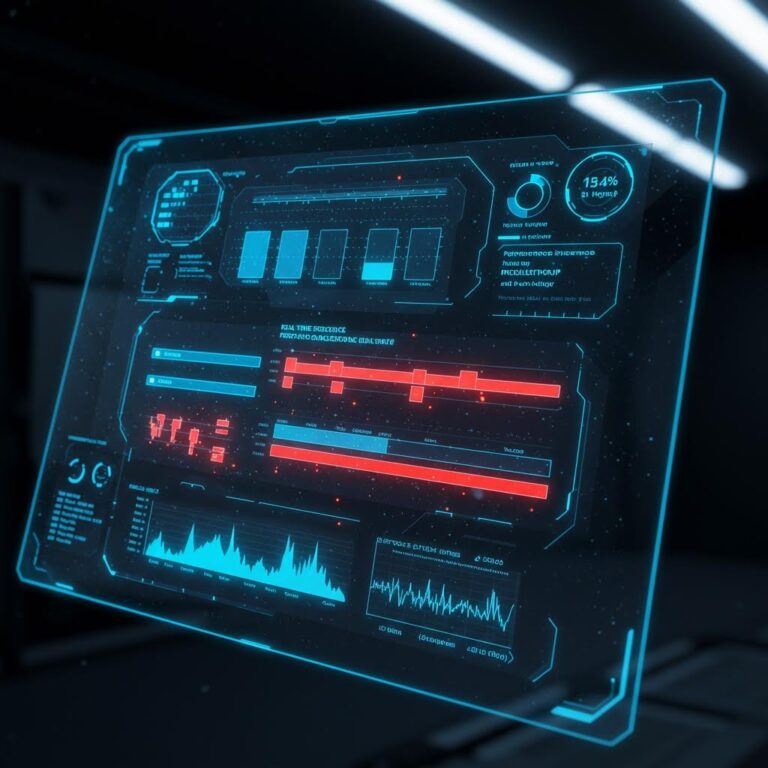카지노 솔루션과 토토 솔루션의 시장적 배경 온라인 게임 솔루션 시장은 전 세계적으로 다양한 형태로 발전해 왔습니다. 실제로...
클라우드 컴퓨팅과 게이밍 플랫폼 운영의 만남 게이밍 플랫폼을 운영하는 데 있어 인프라 구축과 유지 관리 비용은 가장...
책임감 있는 게이밍 정책의 도입 배경과 목표 디지털 환경에서의 게임 및 엔터테인먼트 활동이 일상화되면서, 이용자의 건강한 참여를...
라이브 카지노 스트리밍 기술의 진화와 핵심 요소 라이브 카지노 스트리밍 기술은 단순한 영상 중계를 넘어, 사용자가 언제...
VR/AR 기술 도입을 위한 B2B 솔루션 개발 투자 현황 분석 기업의 디지털 전환 가속화와 함께 VR(Virtual Reality)과...
알본사의 마케팅 채널 선택: 기본 개념 이해 알본사가 다양한 솔루션을 성공적으로 시장에 도입하고 운영하기 위해서는 효과적인 마케팅...
토지노 솔루션의 성장과 사용자 행동 분석의 중요성 토지노 솔루션 시장은 빠르게 성장하고 있으며, 단순한 기술 제공을 넘어...
블록체인 정산 시스템의 핵심 개념과 작동 원리 블록체인 기반의 투명한 정산 시스템은 기존의 중앙 집중식 데이터 처리...
솔루션 제공업체의 보안 인증, 왜 중요한가 디지털 환경에서 솔루션을 선택할 때 기능과 성능만큼이나 중요한 기준이 있습니다. 바로...
카지노 캐싱 시스템의 기본 구조와 유지 원리 카지노 캐싱 유지 조건은 온라인 게임 환경에서 데이터 처리 속도와...
토토 서버 속도 지연의 기본 개념 온라인 베팅 환경에서 서버 속도는 사용자 경험을 좌우하는 핵심 요소입니다. 특히...
토지노 운영에서 효율성이 중요한 이유 온라인 게임 환경에서 토지노 운영은 단순한 참여를 넘어서 체계적인 관리가 필요한 영역입니다....
데이터 기반 광고 생태계의 새로운 패러다임 현대 디지털 경제에서 가장 주목받는 변화 중 하나는 광고와 상거래 영역의...
알본사 플랫폼의 부하 제어 시스템 이해하기 알본사 플랫폼에서 부하 제어는 서버 안정성과 사용자 경험을 동시에 관리하는 핵심...
CPU와 메모리 성능 비교의 핵심 기준 컴퓨터 시스템을 구성할 때 가장 중요한 결정 중 하나는 CPU와 메모리의...
카지노 운영 시스템과 장애 감지의 중요성 카지노 플랫폼에서 발생하는 기술적 장애는 단순한 시스템 오류를 넘어 운영 전반에...
토토 사이트 지연 현상의 기본 이해 토토 사이트를 이용하다 보면 페이지 로딩이 느려지거나 베팅 처리가 지연되는 상황을...
디지털 마케팅의 패러다임 전환점 클릭 수와 노출량으로 성과를 측정하던 디지털 마케팅이 근본적 변화를 맞고 있다. 광고주들은 더...
토지노 자원 관리의 핵심 이해 토지노 플랫폼에서 자원을 효율적으로 관리하려면 어떤 요소가 게임 성능에 가장 큰 영향을...
백오피스 시스템의 속도 저하 원인과 기본 구조 알본사 백오피스에서 작업 속도가 느려지는 현상은 여러 구조적 요소가 복합적으로...
밴더사 연동 성능 지표의 중요성 외부 서비스와의 연동 작업에서 성능 안정성은 단순한 기술적 요구사항을 넘어선 핵심 가치다....
디지털 시대의 새로운 신뢰 패러다임 현대 소비자들은 브랜드에 대한 정보를 얻기 위해 더 이상 기업의 일방적인 메시지에만...
광고 트래픽과 거래 데이터의 통합 환경 디지털 정산의 새로운 패러다임 온라인 플랫폼의 급속한 성장과 함께 광고 클릭...
디지털 거래 환경의 데이터 검증 체계 실시간 데이터 흐름과 검증 구조의 진화 현대 디지털 플랫폼에서 거래 데이터의...
데이터 중심 정산 인프라의 진화 광고 데이터 집계의 새로운 패러다임 디지털 광고 생태계에서 데이터 집계는 단순한 숫자...
디지털 마케팅 패러다임의 근본적 변화 전통적인 광고 모델이 한계에 부딪히고 있다. 소비자들은 더 이상 일방적인 메시지 전달에...
광고 수익 집계의 새로운 패러다임 데이터 통합의 시작점 온라인 플랫폼 업체들이 광고 수익을 관리하는 방식이 완전히 바뀌고...
광고 성과 측정과 비용 정산의 융합 데이터 중심 정산 환경의 구조적 변화 디지털 마케팅 환경에서 광고 성과와...
광고 데이터 정산의 새로운 패러다임 실시간 데이터 집계가 만드는 변화 디지털 마케팅이 고도화되면서 캠페인별 매출 데이터를 실시간으로...
거래 패러다임의 근본적 변화 전통적인 금융 거래는 결과만을 측정하는 방식에 의존해왔다. 계좌 잔고의 변화, 거래 체결 시점의...
데이터 통합 정산의 새로운 패러다임 광고 수익과 거래 데이터의 융합 구조 현대 디지털 플랫폼에서 광고 수익과 거래...
데이터 통합 정산의 새로운 패러다임 광고 수익과 거래 정보의 융합 구조 현대 디지털 플랫폼에서 광고 데이터와 거래...
정산팀 야근의 숨겨진 원인 매일 밤 11시, 정산팀의 전쟁 매일 오후 6시가 되면 대부분의 직장인들이 퇴근 준비를...
디지털 경제의 새로운 패러다임 전통적인 마케팅 부서가 브랜딩과 광고 집행에만 몰두하던 시대는 이미 지나갔다. 오늘날 기업의 마케팅...
디지털 시대의 새로운 가치 측정 패러다임 현대 브랜드들이 직면한 가장 큰 과제 중 하나는 소비자의 감정을 어떻게...
데이터 중심 광고 생태계의 변화 광고 데이터 패러다임의 전환점 광고 산업에서 데이터의 역할이 근본적으로 바뀌고 있어요. 과거에는...
광고 데이터가 바꾼 정산의 패러다임 시각화가 드러낸 정산 구조의 한계 2019년 어느 겨울날, 광고 대행사의 회의실에서 일어난...
데이터 기반 정산 시스템의 새로운 패러다임 광고 데이터가 바꾼 정산 자동화의 진화 광고 산업에서 데이터의 중요성을 처음...
디지털 광고의 수익 전환 메커니즘 현대 디지털 마케팅에서 광고 효율성 측정은 단순한 노출 횟수나 클릭률을 넘어선 차원으로...
광고 데이터가 열어낸 정산 자동화의 새로운 지평 마케팅 데이터 분석의 패러다임 변화 10년 전만 해도 캠페인 성과...
광고 데이터가 만든 정산 자동화의 새로운 패러다임 수익률 분석이 바꾼 정산 시스템의 근본 광고 플랫폼에서 정산 업무를...
광고 데이터가 이끄는 정산 혁명의 서막 마케팅 데이터 생태계의 근본적 변화 10년 전만 해도 광고 데이터와 재무...
디지털 경제의 새로운 패러다임 오늘날 기업들은 매출을 올리기 전에 먼저 클릭을 쌓는다. 전통적인 비즈니스 모델에서는 상품을 판매하고...
디지털 광고 데이터의 새로운 가능성 광고 클릭에서 매출까지의 데이터 흐름 구조 디지털 마케팅 현장에서 일하다 보면 광고...
디지털 마케팅 생태계의 투명성 혁명 데이터 중심 정산 시스템의 등장 배경 디지털 광고 시장이 폭발적으로 성장하면서 기존의...
데이터가 만들어낸 정산의 새로운 패러다임 광고 데이터에서 시작된 자동화 혁명 10년 전만 해도 광고 데이터 분석은 엑셀...
데이터가 바꾼 정산의 새로운 패러다임 광고 데이터에서 시작된 정산 혁명의 서막 몇 년 전만 해도 정산이라는 건...
광고 데이터가 그려낸 새로운 수익의 지평 보고서에서 수익 지도로의 패러다임 전환 10년 전만 해도 광고 데이터는 단순한...
디지털 광고의 데이터 흔적, 정산 혁명의 시작점 클릭 하나가 만드는 데이터의 연쇄반응 사용자가 광고를 클릭하는 순간, 보이지...
디지털 마케팅의 숨겨진 혁신, 클릭 하나가 만든 거대한 변화 마케팅 데이터가 바꾼 비즈니스 정산의 새로운 패러다임 광고...
데이터가 만들어낸 극적인 반전의 순간 회의실에 흐르던 긴장감 컨퍼런스룸에 들어서는 순간부터 분위기가 심상치 않았다. 광고주 측 임원들의...
광고 데이터가 바꾼 예산 관리의 새로운 패러다임 데이터 중심 광고 예산 관리의 등장 배경 마케팅 업계에서 20년...
광고 데이터 혁신이 만든 운영 패러다임의 변화 실시간 데이터 처리가 바꾼 광고 운영의 새로운 기준 마케팅 테크놀로지...
광고 데이터가 만든 정산 자동화의 새로운 패러다임 마케팅 테크놀로지 혁신의 출발점 광고업계에서 10년간 데이터 분석 업무를 담당하면서...
광고 데이터가 만든 회계 혁명의 시작 디지털 마케팅 시대, 회계 패러다임의 전환점 10년 전만 해도 광고비 정산은...
광고 데이터가 바꾼 정산의 패러다임 마케팅 테크놀로지의 새로운 전환점 10년 전만 해도 광고 정산은 엑셀 시트와 계산기가...
디지털 광고 생태계의 데이터 혁명 캠페인 데이터에서 시작된 변화의 물결 마케팅 업계에서 20년 가까이 일하면서 가장 극적인...
디지털 마케팅 생태계의 새로운 변화 투명성이 부족한 기존 정산 시스템의 한계 현재 디지털 광고 시장에서 가장 큰...
디지털 광고 데이터가 만들어낸 정산 혁명 클릭에서 시작된 데이터 흐름의 변화 10년 전만 해도 광고 클릭 데이터는...
디지털 광고 시대, 데이터가 만들어낸 회계 혁명 전통적 회계 시스템의 한계와 변화 신호 10년 전만 해도 광고비...
광고 데이터가 만든 정산 혁명의 시작 마케팅 테크놀로지 전문가가 본 정산 자동화의 진화 지난 10년간 광고 데이터...
데이터 기반 광고 시장의 폭발적 성장과 자동화의 필요성 광고 시장에서 데이터가 만들어낸 패러다임 변화 광고 시장을 바라보는...
디지털 마케팅 데이터가 만든 정산 혁명 클릭 한 번이 만드는 신뢰의 생태계 마케팅 테크놀로지 분야에서 15년을 보내면서...
데이터가 만들어낸 정산 혁명의 시작 광고 데이터의 폭발적 증가와 정산 시스템의 변화 10년 전만 해도 광고 정산은...
광고 데이터가 만들어낸 정산 혁명의 시작 마케팅 테크놀로지의 새로운 패러다임 10년 전만 해도 광고 효과 측정은 마치...
광고 데이터의 실시간 변환과 회계 시스템의 만남 디지털 광고 생태계의 데이터 흐름 혁신 마케팅 테크놀로지 분야에서 10년...
디지털 마케팅의 새로운 패러다임 데이터 중심 광고 집행의 시대적 변화 과거 광고 집행은 직감과 경험에 의존하는 경우가...
광고 데이터가 만들어낸 회계 혁신의 시작 디지털 마케팅 환경에서 데이터 중심 정산의 등장 10년 전만 해도 광고비...
광고 데이터가 이끄는 정산 자동화의 새로운 패러다임 마케팅 정산의 디지털 전환점 마케팅 업계에서 15년간 데이터 분석 업무를...
광고 데이터가 만들어낸 정산 시스템의 패러다임 변화 복잡한 광고 생태계에서 시작된 자동화의 필요성 마케팅 테크놀로지 분야에서 10년...
광고 데이터가 이끄는 정산 자동화의 새로운 패러다임 디지털 마케팅 생태계에서 정산 자동화의 필요성 10년 전만 해도 광고...
광고 데이터 연동이 바꾼 정산 자동화의 새로운 패러다임 디지털 마케팅 생태계의 정산 혁명 마케팅 테크놀로지 분야에서 15년을...
광고 데이터가 바꾼 정산의 패러다임 전통적 정산 방식의 한계점 마케팅 테크놀로지 분야에서 10년 넘게 일하면서 가장 큰...
광고 데이터가 바꾼 정산 자동화의 새로운 지평 데이터 중심 정산 시스템의 등장 배경 마케팅 테크놀로지 분야에서 15년간...
디지털 광고 데이터가 바꾸는 정산의 패러다임 데이터 중심 정산 시대의 개막 마케팅 테크놀로지 분야에서 15년간 일해오면서, 가장...
데이터 혁명이 만들어낸 광고 시장의 새로운 패러다임 광고 데이터가 바꾼 정산 시스템의 진화 마케팅 테크놀로지 분야에서 15년간...
광고 데이터가 바꾼 정산 시스템의 패러다임 정산 자동화의 새로운 출발점 마케팅 테크놀로지 분야에서 10년 넘게 일하면서 가장...
데이터 기반 광고가 가져온 새로운 회계 관행 디지털 광고 시장의 혁신적 변화 최근 몇 년간 광고 업계는...
디지털 광고 데이터가 만들어내는 기업 정산의 새로운 패러다임 광고 데이터 중심의 정산 시스템 전환 배경 최근 몇...
광고주와 기업 모두가 체감하는 데이터-정산 일치의 중요성 디지털 광고 시장의 투명성 요구 최근 디지털 광고 시장에서 가장...
디지털 광고 정산 데이터 시스템의 혁신적 변화 데이터 중심 정산의 새로운 패러다임 최근 몇 년 사이 디지털...
디지털 마케팅 생태계의 혁신적 변화 광고 기술의 패러다임 전환 최근 몇 년간 디지털 광고 산업은 전례 없는...
실시간 광고 기록 시스템과 자동화 정산의 혁신적 통합 디지털 광고 생태계의 변화와 실시간 데이터 처리 최근 몇...
IT업체를 위한 케이스 스터디·웨비나 리드 생성 파이프라인 구축 가이드 디지털 마케팅의 새로운 전환점 최근 IT업계에서 가장 주목받는...
IT업체의 광고 솔루션이 리드 너처링에 미치는 혁신적 변화 디지털 마케팅 생태계의 새로운 전환점 최근 몇 년간 IT업계에서...
랜딩페이지 전환율 최적화를 위한 핵심 요소 분석 전환율 개선의 기본 원리와 중요성 랜딩페이지의 성공은 방문자를 고객으로 전환시키는...
IT업계 광고 혁신의 새로운 패러다임 디지털 마케팅의 진화와 창의적 접근 IT업계의 광고 전략은 기존 마케팅 방식을 완전히...
디지털 혁신을 이끈 IT 광고 솔루션의 진화 온라인 시장의 급속한 변화와 광고 생태계 최근 몇 년간 온라인...
디지털 시대의 IT 마케팅, 기술과 창의성의 완벽한 조화 IT 마케팅의 새로운 패러다임 현대 IT 업계에서 마케팅은 단순한...
디지털 시대의 IT 광고 혁신과 브랜드 이미지 강화 전략 IT 광고의 패러다임 변화와 시장 트렌드 현대의 IT...
IT 기업들이 주목하는 혁신적인 광고 전략의 변화 디지털 마케팅 패러다임의 전환점 최근 몇 년간 IT 기업들의 광고...
디지털 광고 시장의 새로운 변화, IT 솔루션이 만드는 혁신 디지털 광고 시장의 급속한 성장과 변화 최근 몇...
디지털 전환 시대, IT기업을 위한 맞춤형 광고 솔루션 전략 디지털 전환이 가져온 IT업계의 변화 코로나19 이후 급속도로...
디지털 마케팅 혁신과 IT 광고 솔루션의 새로운 패러다임 디지털 마케팅 환경의 급속한 변화 최근 몇 년간 디지털...
IT업체를 위한 맞춤형 광고 솔루션의 새로운 패러다임 디지털 마케팅 환경의 급속한 변화 IT업계의 광고 환경이 그 어느...
디지털 시대의 광고 데이터 혁신과 스마트 마케팅의 새로운 패러다임 광고 데이터의 진화와 현대 마케팅 환경의 변화 현대...
중소 IT업계를 위한 맞춤형 광고 운영 서비스의 새로운 패러다임 중소 IT기업이 직면한 광고 운영의 현실적 어려움 대기업과...
IT업체 마케팅 성과 향상을 위한 맞춤형 광고 솔루션 운영 전략 디지털 마케팅 환경의 변화와 맞춤형 솔루션의 필요성...
GENOME 광고 솔루션의 보안성 검증과 데이터 보호 방안 제시 디지털 광고 환경의 보안 위협 현황 현대 디지털...
글로벌 타겟 마케팅을 위한 GENOME 솔루션 활용 전략 현대 마케팅 환경의 변화와 GENOME 솔루션의 등장 디지털 마케팅...
GENOME 광고 솔루션 성능과 안전성 검증 절차 상세 분석 GENOME 광고 솔루션 개요 및 시장 동향 디지털...
Genome 솔루션을 통한 차세대 맞춤형 광고 캠페인 전략 개인화 광고의 새로운 패러다임, Genome광고솔루션의 등장 디지털 마케팅 환경에서...
데이터 기반 마케팅의 새로운 패러다임, Genome 솔루션이 제시하는 혁신 현대 마케팅 환경의 변화와 데이터의 중요성 디지털 시대의...
Why do craps players believe they can control random dice rolls despite statistical impossibility - the answer...
Journey inside the deceptive world of pyramid scheme casinos, where promises of guaranteed riches mask a calculated...
Profit-driven casino partnerships with influencers conceal rigged games and hidden commissions while creating an illusion of easy...
Behind every sports bet lurks a $140 billion match-fixing epidemic that's outpacing security measures despite advanced AI...
Heartfelt songs can unlock your deepest emotions, but which melodies will help you embrace vulnerability and find...
Protect yourself from gambling scams by learning to spot fake security certificates that deceptive operators use to...
College achievers falling into gambling's grip: how straight-A students spiral from innocent bets to devastating addiction.
Tired of bottling up your feelings? These cathartic karaoke songs help you express what you can't say...
Powerful auto-play features in games and slots create dangerous addiction loops through rapid rewards, but how do...
In a world where luck masquerades as skill, discover why gamblers fall prey to dangerous cognitive distortions.
Magical karaoke songs transform strangers into friends - discover which anthems create instant connections and why they...
In a brilliant casino heist, high-tech contact lenses revealed invisible card markings, until an observant pit boss...
Strategic casino entrance and exit placement shapes player psychology and spending patterns - but the real secrets...
These empowering anthems prove you don't need perfect pitch to unleash your inner diva and feel absolutely...
How casinos leverage the reciprocity principle through strategic comps to create psychological obligation, influencing players' decisions beyond...
Peer behind the curtain of deceptive affiliate marketing schemes that secretly influence product reviews and drain your...
Peek into your partnership's true dynamics through karaoke duets, where song choices and synchronization expose hidden relationship...
Savvy gamblers maximize their odds by knowing house edge percentages, but few realize how this knowledge transforms...
Peer-to-peer casino games with live dealers create an addictive blend of social connection and hardcore gambling that's...
Grappling with raw emotions, these deeply personal songs become secret anthems we only dare sing when no...
You won't believe how these shady jackpot networks deceive players - discover the red flags before risking...
Nevada's Golden Sands Casino grew from modest roots to a $298M powerhouse, but a shocking FBI raid...
Grief melts into giggles as these perfectly chosen karaoke songs transform your toughest memories into empowering, hilarious...
Modern college gambling surges as predatory betting apps target students, leaving thousands battling addiction, debt, and derailed...
Behind every trader's selective memory lies a powerful cognitive bias that distorts reality - discover why your...
Beyond simple melodies, these beloved anthems transform strangers into a unified chorus of shared emotion and electric...
Annoying dark patterns deployed by websites make deleting your account a maze of psychological tricks - but...
Operators who validate gambling licenses establish trust, protect players, and ensure compliance - but the benefits don't...
A power-packed playlist of cinematic karaoke songs transforms ordinary moments into epic movie scenes, but which track...
Knowing how social media success stories skew our perception of reality can help us avoid falling into...
Warning: those perfect betting records flooding your social media feed hide dark secrets that could save you...
From Star Wars to Rocky, these unforgettable film scores instantly transport viewers back to cinema's most powerful...
Optimize your gambling success and protect your finances by mastering the golden rule that smart bettors never...
Athletes' high-stakes betting addiction stems from a perfect storm of brain chemistry, wealth, and constant gambling exposure?�but...
Transform your emotional struggles with scientifically-proven songs that activate healing brain chemicals and guide you toward hope.
Learn how scammers create fake gambling news to manipulate betting odds and steal from unsuspecting bettors.
Uncover how casinos strategically serve free drinks to increase profits by exploiting alcohol's powerful effects on player...
Like faded photographs set to music, these songs resurrect the ghosts of yesterday and remind us who...
Addiction lurks beneath friendly office pools, turning casual betting into compulsive behavior that can destroy careers and...
Between peak performance and dangerous delusion lies "the zone" - discover how this trance-like state affects gambling...
Learn how casinos strategically manipulate time perception through "anchoring" techniques, making you lose track of hours and...
Need an instant mood boost? Navigate through this scientifically-backed playlist of euphoric hits that'll flip your week...
Careful placement of stop-loss orders can protect your automated bets, but hidden dangers could turn these safeguards...
How finding the perfect karaoke song can turn your life's biggest moments into an unforgettable performance worth...
How casino bonus-chasing traps players in a psychological cycle of mounting losses, even when they know better...
Today's online gambling platforms secretly profit from your personal data - discover how they're selling your information...
A perfectly-timed song can express your heartfelt goodbye when words fail, but which melody will capture your...
Behind every unregulated gambling platform lies a web of strategic failures that expose players to unprecedented risks...
Online gambling traps millions of young South Koreans in a deadly cycle of debt, but the underground...
Soaring instrumental melodies become your silent companion, creating a sanctuary where tears can finally flow freely.
Professional gamblers aren't the only ones flashing big wins online - discover how influencers fake fortunes to...
Breakthrough meditation techniques used by pro gamblers reveal the secret mental strategies that transform impulsive betting into...
Behind popular party anthems lie raw emotional revelations waiting to be unlocked during intimate karaoke performances.
In an era of digital gambling, millions face a deadly spiral of addiction, pushing them toward the...
Nobody saw it coming: a master magician's million-dollar heist exposed critical security flaws in Las Vegas' most...
Amp up your karaoke game with these epic movie montage songs that'll transform you from shy singer...
Once a celebrated Wall Street advisor, David Carter's meteoric rise crumbled as his hidden gambling addiction led...
Knowing how visual design tricks your brain into trusting websites reveals a fascinating psychological vulnerability we all...
Glimpse inside the intimate world of unspoken emotions, where songwriters transform unsent letters into timeless ballads that...
Never assume your intelligence shields you from gambling's traps - discover why even the smartest players fall...
In gaming communities worldwide, players unite as digital watchdogs, but their innovative methods for catching scammers will...
Soar through a curated collection of karaoke classics that turn everyday singers into superstars, whether performing for...
Observe how casinos masterfully manipulate lighting to shape player psychology and betting patterns - the science behind...
Greed-driven fraudsters exploit charitable gambling through sophisticated casino scams, but knowing these red flags could save your...
Guarded hearts find solace in these subtle songs that mask longing beneath dreamy melodies and metaphors.
Journey into the sinister world of AI-powered gambling scams, where fake support chats mask an elaborate deception...
You know sports betting apps are fun, but do you understand how their one-click features hijack your...
Let your mind drift into musical oblivion as these transformative songs create portals to otherworldly dimensions during...
Uncover why mobile lottery games hijack your brain's reward system and create dangerous addiction patterns that are...
Sinister foreign syndicates infiltrate Philippine casinos with elaborate scams, causing billions in losses and sparking an unprecedented...
These unforgettable karaoke songs become personal anthems during life's pivotal moments, speaking directly to your soul when...
Sinister AI algorithms at Desert Star Casino preyed on vulnerable gamblers, until a shocking investigation exposed their...
From lucky charms to ritualistic behaviors, discover why bettors create superstitious routines to cope with high-stakes gambling...
Musical tastes reveal your deepest truths and hidden desires - discover how your playlist shapes your identity...
Jarring patterns emerge when platform outages consistently align with winning trades - but are these disruptions truly...
Mass psychology drives sports bettors to follow the crowd, but this costly behavior could be draining your...
Peek into the power of karaoke therapy, where the right song choice can mend those tiny emotional...
In trading, establishing smart loss limits could save your portfolio - but only if you know these...
Who's really pulling the strings behind $2.3M in daily gambling transactions? A global investigation exposes the shadowy...



































